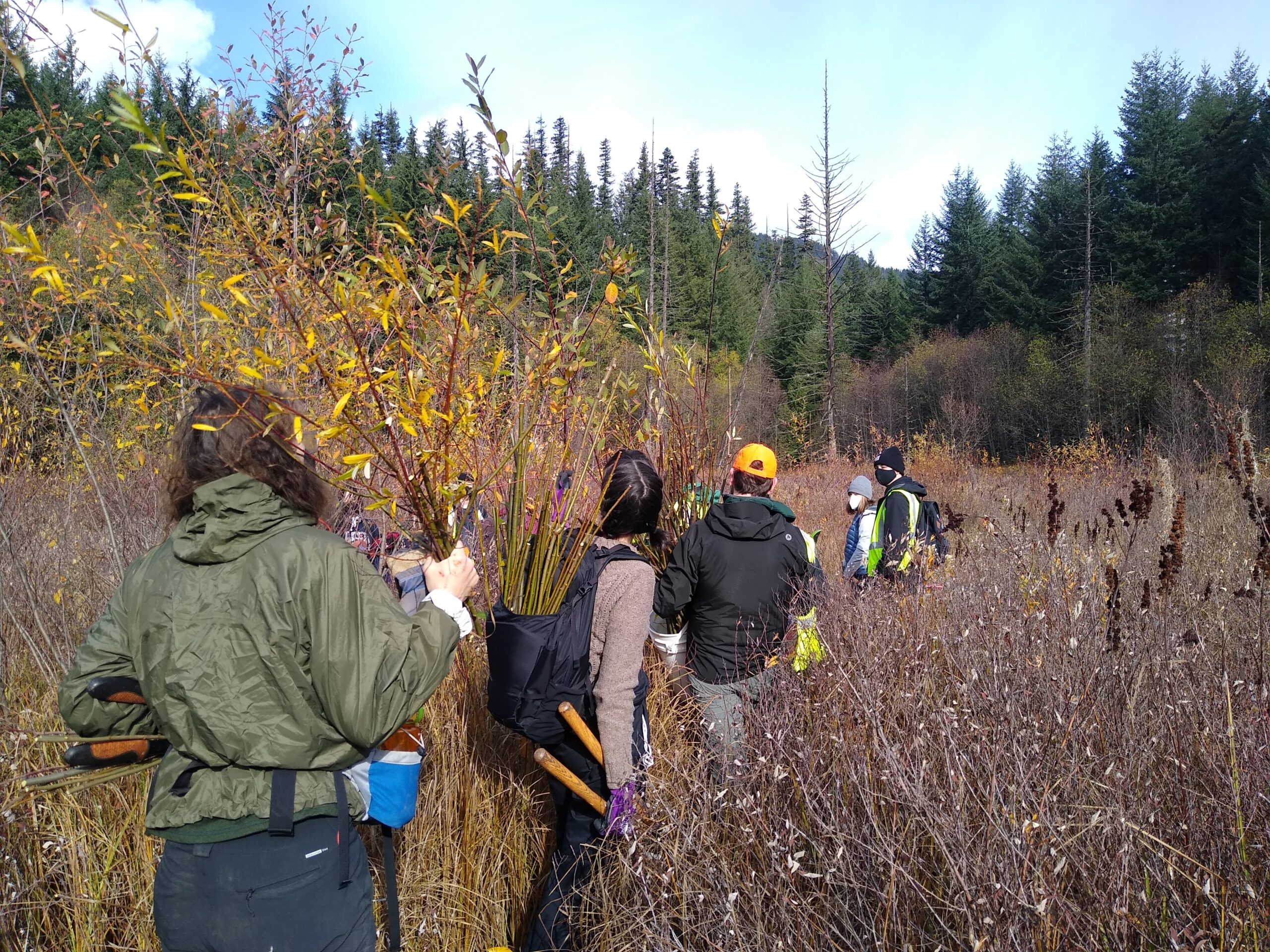Beyond Land Acknowledgements…

In the last several years, I have begun to understand the ways that my “nature-loving” identity reinforces a white-supremacist environmental narrative about the purity of nature. This narrative is embedded in the colonization of Indigenous land and the federal government’s continuing practices of erasure of Native authority. I’m writing to you today to ask that you support Bark’s commitment to undermining these oppressive narratives in conservation. We are creating a new, permanent position dedicated to strengthening Bark’s accountability to and solidarity with Native communities.
Donate today to support the Native Communities Liaison!
I am a non-Indigenous person living on stolen land. And, as someone who genuinely loves this land, it is my responsibility to support justice for the communities who are most impacted by the history of colonization and settler-environmental narratives.
Volunteering with Bark, I have witnessed a shift in how the organization educates and engages with volunteers and supporters. One way I have experienced it is through the Historical Acknowledgment and Accountability practice which provides a justice-oriented context for the education and commitment to environmental justice. Land Acknowledgements are an important first step in moving towards a more equitable future, and this movement for radical justice, cultural restoration, and ecological prosperity means that we must also move beyond acknowledgement and into accountability. If you are interested in learning more on this, these two resources have each made a profound shift in my understanding:
- “National Forests on Stolen Lands” which uncovers the deep history of the displacement of indigenous people and connects this history to the current context.
- As Long as Grass Grows by Dina Gilio-Whitaker
All these learning experiences have woven together to fundamentally change my understanding of what it means for me, a settler person, to engage in forest defense through participation in the public comment process. When I’m in the forest, collecting information about the ecosystem and the impacts of industrial logging, I am aware that I am on stolen land. The questions I’m asking about these trees and streams are only scratching the surface of the questions that need to be asked, and the actions that need to take place, to begin to restore environmental justice from the ground up.
Please join me in supporting Bark generously! I invite you to engage in these learnings and actions to continue to challenge old paradigms of environmentalism and work together toward making environmental justice real.
Donate today to support the Native Communities Liaison!
Mia Pisano, Bark Volunteer

P.S. Join us tomorrow for the 4th annual People’s Forest Forum: Unsettling Ecologies of Mt. Hood! Bark’s Free Mt. Hood Committee is joining up with PSU students to lead us in story-telling that provides new or alternative ways for advocates, users, and land managers for Mt. Hood National Forest to grapple with its pasts, presents, and futures.
P.P.S. Action Alert! The public comment period is open for feedback on Senators Blumenauer and Wyden’s proposed legislative improvements for Mt. Hood and the Gorge. Let them know what you think!